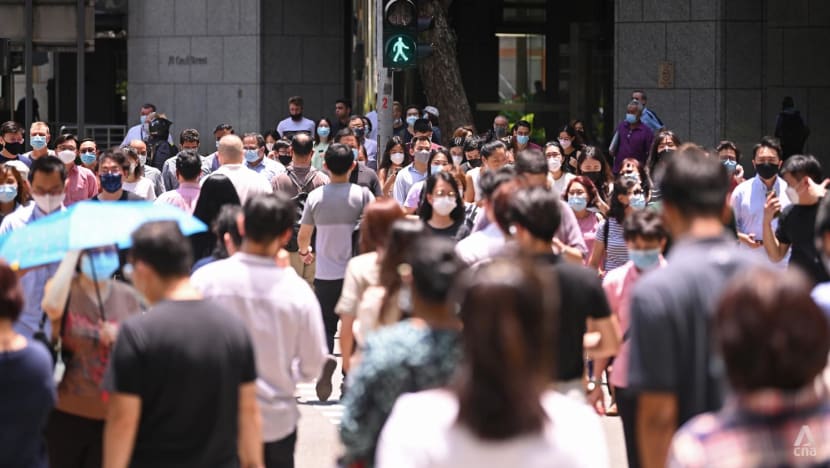More businesses adopt 4-day work week to attract, retain workers amid fierce competition for talent
In a recent survey of 1,000 workers in Singapore, four in five say they want a four-day work week. But this arrangement is not for everyone, say observers.

SINGAPORE: Instead of giving its employees an annual pay bump during the COVID-19 pandemic, one dental clinic here chose to offer an extra day off every week in a bid to retain its talent.
The move paid off for DP Dental, as attrition rates have been cut by at least half since it started the work arrangement. It is now keeping the practice of a four-day work week.
More businesses in Singapore are adopting a four-day work week to attract and retain their workers amid a tight labour market.
And many workers here seem keen to take on a shorter work week.
In a survey of 1,000 workers, 81 per cent said that they want a four-day work week. The poll by consumer research firm Milieu Insight last month found that more than three-quarters of those who want a four-day week see having a greater work-life balance as a key benefit.
But such an arrangement is not for everyone, said DP Dental chief executive officer Louisa Lee. Her clinic, located in Kovan and Orchard, has a workforce of about 40 employees, including front desk staff and dental surgeons.
“I do have some team members who are, say, from overseas, and they're single, and they're here in Singapore just to make sure that they can support the family back home,” she said.
“For these people, we actually increased the number of hours back to maybe four-and-a-half days, or some even five days."
More companies in Singapore are adopting a four-day work week in a bid to attract and retain workers. However, the arrangement might not work for everyone or every business model.
ATTRACTING EXPERIENCED PROFESSIONALS
Meanwhile, food and beverage business Coriander Leaf Group – which saw some workers leaving the industry during the pandemic – has been offering its new hires a four-day work week for several months now, in an attempt to attract more experienced professionals.
“I simply thought (our former employees) were rotating out, and we’ll have them back in the industry when things were back,” said Coriander Leaf Group chief executive Rajeev Panjwani.
“But it’s been two years. They’ve joined other industries, I’d imagine, and there is a paucity of F&B industry professionals across the industry.”
The new work arrangement, he said, only “started getting traction the last couple of weeks, which is staggering to believe because you do know professionals want better (work-life balance)”.
“It's now that we've done some recent hires, where they came specifically for that purpose saying, ‘four-day work week, I'm in’. So we know the wheels are turning, albeit slowly,” he added.
But Coriander Leaf will not be extending the shorter work week to its existing staff just yet. For now, it will be monitoring the new hires' productivity for two months first.
If productivity does not increase, it may have to compensate for the reduced hours by hiring more workers – a concern shared by most firms here.
SHORTER WORK WEEK = LOWER PRODUCTIVITY?
"I wouldn't say that having a shorter work week necessarily would therefore mean lower productivity,” said Singapore Human Resource Institute deputy executive director Cedric Chew.
“But yes, business costs might go up,” he said. “If you don't hire more people, you may have to bring in more automation, for example, or something else to compensate.”
However, this may not be a bad thing, he added. “It may mean higher business costs initially, but it may not be a recurring cost, for example, if it's one-time. So if that actually increases productivity in the long run, that's a good thing."
Last month, a parliamentary question about the four-day week was widely shared.
Minister of State for Manpower Gan Siow Huang had said that employers and employees should adopt a "flexible mindset" on a four-day work week.
"A four-day work week is one of many types of flexible work arrangements, and the ministry, together with our tripartite partners, strongly encourages employers and employees to be open to flexible work arrangements in all its various forms to identify and adopt those that best suit their unique business needs and their workers' needs," she added.
Ms Gan said stakeholders have concerns about how such a move would impact business costs, productivity and worker well-being. She added that a four-day work week may work well for some employers and employees but not others.




















